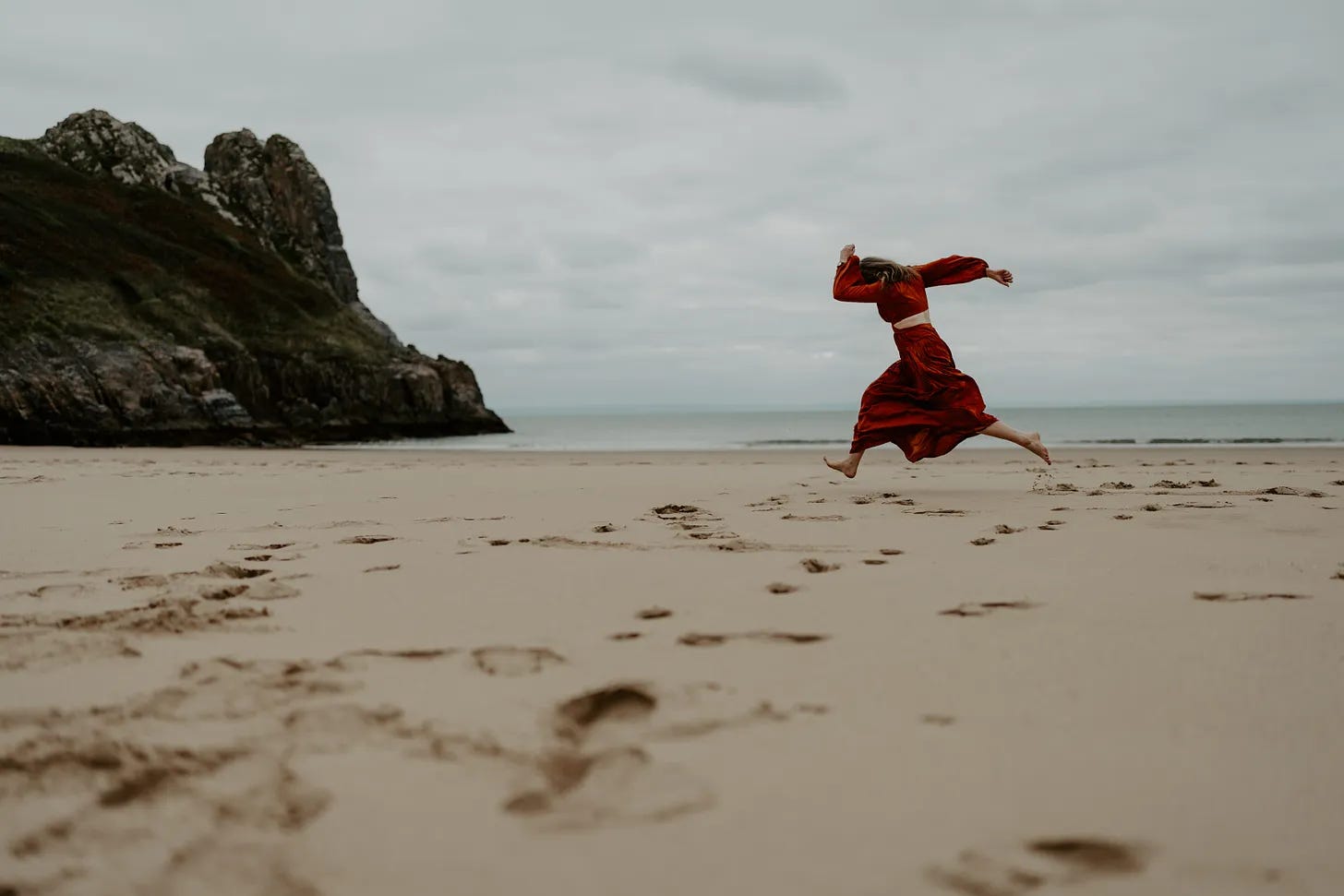While I write, my friend Alice is Whatsapping me from COP16 in Cali. Important people from 192 countries flew into this mountain-side Columbian town around a week ago, and since then have been wrangling about how much of the planet we should probably conserve, and whose job it is, and isn’t.
She says the mood is tense: with suits and lawyers in one camp, indigenous leaders in another. They notionally want the same things — to save a planet where around 1 million species already face extinction. But their language mode is clashing, one made of legal terms that weighs, portions and controls, the other, screaming, IT’S US YOU DELUDED SUITED WEIRDOS. NATURE IS US.
The audacious urgency of this event horizon is mostly unfathomable to our tiny human brains. Around 25% of species on this planet are right now facing their ending, thanks to the violent destruction of wild places on a scale so large its unseeable. Tens to hundreds of times bigger than at any time over the past 10 million years. It’s mammoth. Too big for our little heads. And so we park that knowledge in a spot to the sidelines, hoping someone out there will save the day, perhaps with a Harvard degree and a lot of money.
But I’m not sure we have time for suits anymore. I’m not sure we have time for the rich diplomatic language of legal frameworks and hedging; the ways our strongest demands are locked in Times New Roman on pdfs, instead of being chanted by humans and animals in their millions, bare feet in moss, screaming until our throats are like sandpaper.
Reminding us of the thing we all know in our bones — We Are Nature. We are Nature. We are Nature.
Not separate, above it, controlling it, taming it, but part of it, interlocked with its rise and fall.
Nature doesn’t not belong us.
We belong to it.
It thrives, we thrive.
It dies…
The force of this flip has blow into my life in all sorts of ways this week. In a chance conversations with some friends about a farmer’s contribution to a river waste consultation, we asked ourselves, who is representing the river? No one. The rivers have no voice. On Sunday night I’m crouched in the dark with my hands in the waters of a sacred well in the woodland behind Caswell Bay, knowing this well has been here for at least 1500 years. The waters are older than us. And yet we deign to poison them. On Thursday I told a very old story to 60 humans around a campfire in Tottenham where the heroine and hero of the tale chase through the skies, transforming into fish, birds and mammals. “WE ARE ANIMALS!” a man shouts, and we’re all shouting into the darkness with every inch our lungs and it feels true and also fucking GREAT.
I asked a lot of people this week about what they see in their minds when they imagine an ocean. I recently learned that I’m mostly aphantasic, which means I don’t tend to imagine in images, but in feelings. When I imagine an ocean I feel myself close to a giant body of water and I can feel the force of its gravity pulling on my cells and how colossal it is and little I am. When I imagine a tree I feel like its roots are my roots. Image flashes might come, or not, but to me nature isn’t a separate thing I can look at, like a photograph or film. It’s by my side protecting me like a sibling. Do you feel that? If you did, would it change how you treat the natural world?
‘Nature is ours’ vs ‘We are nature’ is compelling to me, because it acts like a kind of Meta Code. Change that, and a whole raft of toxic systems come unstuck. Economic extractivism. Test-based education. Biodiversity loss. It’s a giant idea: reset our relationship with nature, and another world is possible. It’s an idea that’s beginning to root itself in our human world. By Climate Spring. Nature as the Artist. Making Tracks. Made In Hackney Food Kitchen. Right to Roam. The Dadeni programme in Wales. Transition Towns. Change-makers everywhere are resetting their place in the landscape of things; placing themselves inside, not outside of nature. They are transforming outer systems to match.
Is it enough? No. But in another way, yes. If we view success in our communities, in our resilience and sense of connectedness. The British folklorist Sharon Blackie recently said that “there are other ways of imagining the world and our place within it. Of living more intensely, and more richly, in a world that is filled with challenge and sorrow.”
On Sunday I dived headfirst into the River Severn. I felt her freeze my neck and caressing my skin. I wonder how any framework or legal document could fathom her. I want every person at COP16 to not be allowed to set foot in the space without walking through rainforests first. I want our leaders to burn their legal text books and spend their mornings lying back flat on wet grass, and their evenings with their feet in sand, screaming at the sea.
I think it’s happening. The Great Rewilding.
I think that every day more people wake up and notice all the small and big ways that we aren’t separate from that thing we call wilderness.
That the wilderness is inside us. Always.
Where to find me this month
✨ YesStories London, where I’ll be sharing a story about the Lost Goddesses of Britain. Monday 11 Nov, Tix here: https://fb.me/e/2x0UmQ3wT
✨ Perfectly Strange, Swansea Mission Gallery, telling some wild tales from the land on Saturday 30 Nov, 2pm. More here: https://www.missiongallery.co.uk/open-call-perfectly-strange/
✨ The New Story Of Britain, over on our new Substack, where we talk about our process to rewild the Story of Britain.





